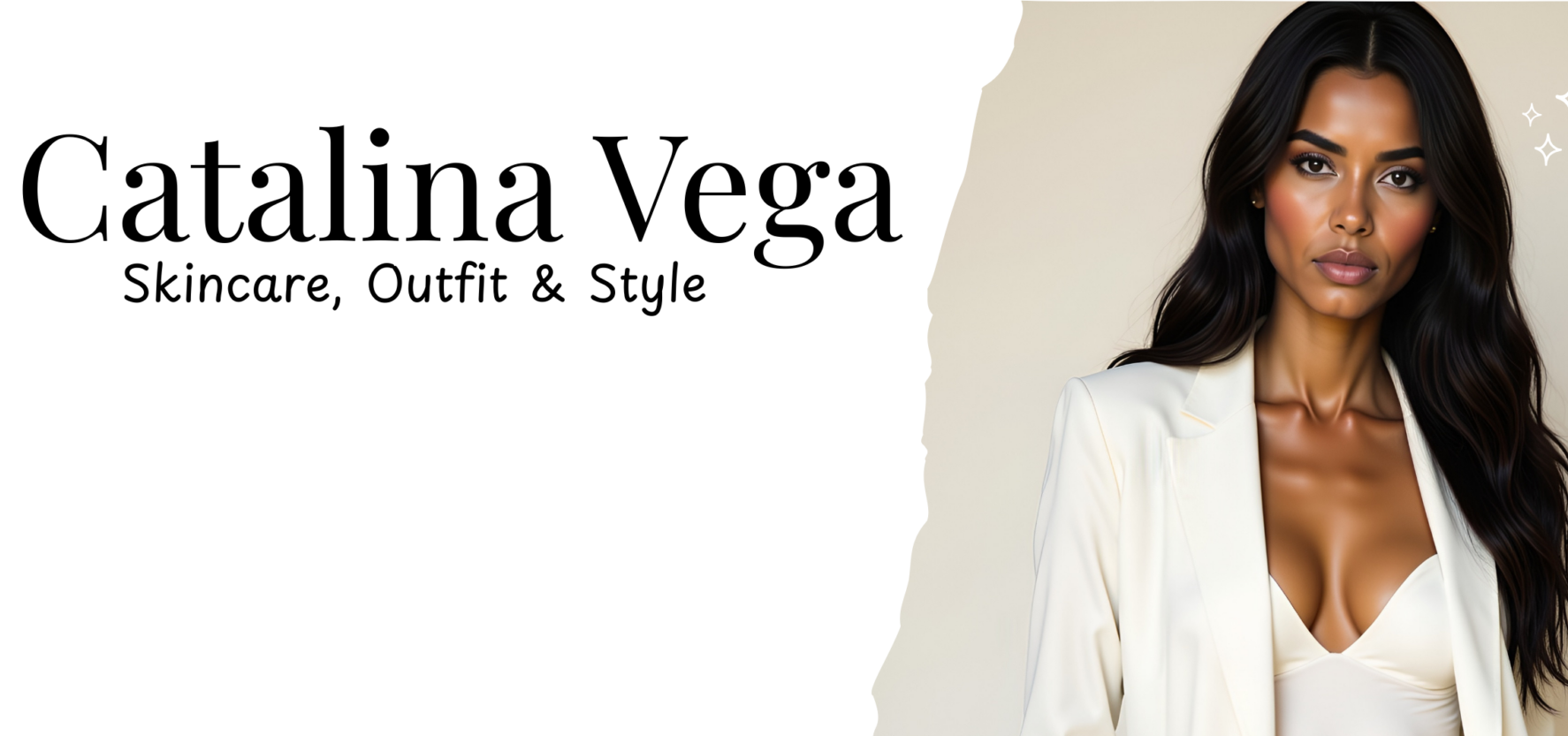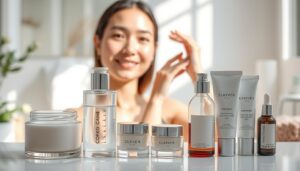Table of Contents
When it comes to managing frizz and restoring damaged strands, two popular options stand out: hair botox or keratin treatments. Both promise smoother, shinier results, but they work in very different ways. Understanding these differences can help you choose the best option for your needs.
Hair botox focuses on deep conditioning and repairing. It uses a mix of proteins, vitamins, and botulinum to restore elasticity and shine. On the other hand, keratin treatments aim to straighten and smooth by infusing keratin protein into the strands. The results can last for months, but the process often involves chemicals like formaldehyde.
Choosing between these two depends on your goals. Do you want to retain your natural texture or achieve a sleek, straight look? Are you prioritizing safety or long-lasting results? We’ll break down the key factors—like application time, results duration, and safety—to help you decide.
Key Takeaways
- Hair botox focuses on repair and conditioning, while keratin treatments aim for straightening.
- Keratin treatments often use formaldehyde, while hair botox relies on natural ingredients.
- Results from keratin treatments can last up to 6 months, compared to 4 months for hair botox.
- Application time for hair botox is shorter, typically around 1.5 hours.
- Consider your hair type and safety preferences when choosing between the two.
Introduction to Hair Botox and Keratin Treatments
Modern lifestyles demand solutions for smoother, healthier strands. Heat styling, pollution, and humidity can take a toll, leaving locks dull and frizzy. That’s where treatments like these come in—they’re designed to restore shine and manageability.
Both options reduce frizz and add shine, but they differ in their formulas and longevity. One focuses on repair and conditioning, while the other prioritizes smoothness and straightening. Understanding these differences can help you choose the best fit for your needs.

Here’s a surprising fact: 78% of users report reduced styling time after a keratin treatment, according to an All Things Hair survey. This makes it a popular choice for those with busy schedules. On the other hand, the other option is often favored during humid summers for its frizz-fighting benefits.
Seasonal trends also play a role. While one treatment spikes in popularity during winter for its straightening effects, the other is a go-to in summer for its ability to combat humidity. Safety is another factor to consider—some formulas are formaldehyde-free, while others rely on natural ingredients like caviar oil and vitamins.
| Feature | Treatment A | Treatment B |
|---|---|---|
| Primary Focus | Repair and Conditioning | Smoothness and Straightening |
| Key Ingredients | Caviar Oil, Vitamins | Keratin Protein |
| Seasonal Popularity | Summer | Winter |
| Safety | Natural Ingredients | Formaldehyde-Free Options |
Choosing between these two depends on your goals. Are you looking for repair without altering your natural texture? Or do you want a sleek, straight look that lasts for months? We’ll explore these questions in the next sections to help you make an informed decision.
What is Hair Botox?
Looking for a way to revive dull and lifeless strands? Hair botox might be the answer. This innovative treatment focuses on deep repair and conditioning, restoring your natural shine without altering your texture. Unlike other methods, it uses a blend of proteins, vitamins, and amino acids to nourish and strengthen your locks.
Understanding the Hair Botox Process
The process is simple yet effective. It typically involves three steps:
- Clarifying Wash: Removes buildup to prepare your strands for the treatment.
- Nutrient Masque Application: A rich blend of caviar oil and B5 is applied to repair split ends and boost elasticity.
- Heat Activation: Seals in the nutrients for long-lasting results.
This entire procedure takes about 45 minutes, making it a quick and convenient option for busy schedules.
Benefits of Hair Botox
One of the standout benefits is its ability to restore hair health without harsh chemicals. Key ingredients like caviar oil’s omega-3s repair damage, while B5 enhances elasticity. A client shared,
“My 2C curls regained definition without crunchiness.”
However, some may experience scalp oiliness post-treatment. Using a dry shampoo can help manage this. For those who prefer at-home solutions, products like TRESemmé’s keratin-infused conditioner offer a milder alternative, though salon-grade results remain unmatched.
Results typically last 2-4 months, making it a worthwhile investment for those seeking long-term repair. Whether you’re battling frizz or restoring damaged strands, this treatment delivers noticeable improvements.
What is Keratin Treatment?
For those craving smooth, manageable strands, keratin treatments offer a game-changing solution. This salon procedure infuses natural keratin proteins to straighten hair and combat frizz, delivering glossy results that last months.

How Keratin Treatments Work
The science is fascinating: keratin fills gaps in the hair’s cortical cells, while a small amount of formaldehyde creates strong cross-links. This duo bonds proteins to each strand, sealing the cuticle for a sleek finish.
At the salon, expect a meticulous process:
- A clarifying wash removes impurities.
- The keratin solution is painted onto sections.
- A flat iron (450°F) locks in the formula for up to 90 minutes.
Modern formulas have evolved—a 2023 study found just 0.1% formaldehyde emissions, making them safer than earlier versions. Still, they’re not recommended during pregnancy. But in this article you can read side effects of a Keratin Treatment
Benefits of Keratin Treatment
The results speak for themselves. Clients report ditching blowdryers, like one who shared,
“Went from 45-minute blowouts to air-dried silkiness.”
Key perks include:
- Styling freedom: 78% reduce heat tool use (All Things Hair data).
- Frizz control even in humidity.
- Results lasting 4–6 months with proper care.
Extend your treatment’s life with sulfate-free shampoos and silk pillowcases. For those wary of salon visits, at-home keratin masks like Olaplex No. 3 offer a gentler alternative—though they can’t match the salon’s transformative power.
Hair Botox or Keratin: Key Differences
Choosing the right treatment can feel overwhelming, but understanding the differences makes it easier. Both options aim to deliver smooth, healthy strands, but their methods and outcomes vary. Let’s dive into the key aspects to help you decide.

Application Process
The application process differs significantly. One method focuses on deep conditioning, while the other prioritizes structural changes. The first option takes about 2 hours and is chemical-free, making it a safer choice for those concerned about health. The second method, however, involves formaldehyde and takes up to 3 hours.
Duration of Results
When it comes to how long the treatment last, the differences are clear. The first option typically lasts 1-4 months, gradually fading over time. The second method offers longer-lasting results, staying effective for 2-6 months. However, the latter may show a noticeable regrowth line as new strands emerge.
Safety Considerations
Safety is a crucial factor. The first method uses natural ingredients, making it a gentler option. The second method, while effective, often contains formaldehyde, which has raised concerns. California’s Prop 65 warnings and EU regulations highlight the need for caution. Always patch test the first option’s amino acids 48 hours before your appointment.
| Feature | Option A | Option B |
|---|---|---|
| Application Time | 2 hours | 3 hours |
| Key Ingredients | Natural amino acids | Keratin, formaldehyde |
| Results Duration | 1-4 months | 2-6 months |
| Safety | Chemical-free | Formaldehyde used |
Understanding these differences helps you choose the best option for your needs. Whether you prioritize safety, longevity, or ease of application, both treatments offer unique benefits.
Which Treatment is Best for You?
Deciding between two popular treatments can be tricky, but understanding your needs makes it easier. Whether you’re dealing with curly hair, damaged strands, or just want to simplify your styling routine, we’ve got you covered.
Here’s a simple way to choose: If you love your natural curls and want to enhance them, the first option is your best bet. It focuses on repair and conditioning without altering your texture. On the other hand, if you’re dreaming of sleek, straight locks, the second method delivers long-lasting results.
Your hair needs also play a role. High-porosity strands absorb the first treatment better, while low-porosity types benefit from the second’s deep penetration. A quick porosity test can help you decide.
Budget is another factor. The first option requires quarterly upkeep, while the second lasts up to six months. Stylists note that 60% of clients choosing the second method are brides preparing for destination weddings.
One client shared,
“I switched to the first option after the second made my highlights brassy. It’s been a game-changer for my health and styling routine.”
Ultimately, the choice depends on your goals. Love your curls? Go for the first. Crave straightness? The second is your match. Avoid both during pregnancy for safety.
Conclusion
Both treatments offer unique benefits, but your choice depends on your specific needs. If you’re looking to repair and condition, hair botox is your go-to. For a sleek, straight look, a keratin treatment delivers long-lasting results. The key is understanding your goals and lifestyle.
Innovations like Bodycraft’s formaldehyde-free keratin, launching Q3 2024, are making hair care safer and more effective. Before booking, perform a porosity test and verify your stylist’s certification. This ensures the best health and results for your strands.
Ready to take the next step? Book a Strand Integrity Test at participating salons today. For added benefits, pair your treatment with Olaplex No. 3 for bond-building synergy. Your journey to healthier, more manageable strands starts now!




